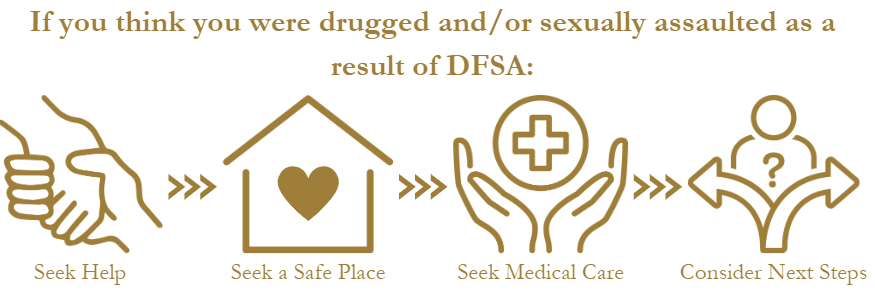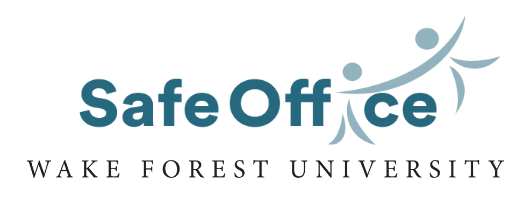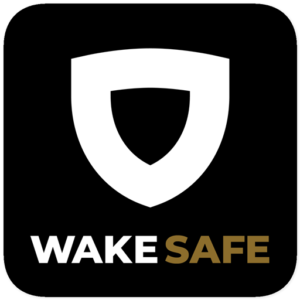Alcohol or Other Drug-facilitated Sexual Assault
Alcohol or other drug-facilitated sexual assault (DFSA) can occur when alcohol or other drugs are used to compromise or incapacitate an individual’s ability to provide consent. This may result in lowered inhibitions, reduced ability to resist, and inability to remember details of an assault.
Remember- if you think you have experienced an alcohol or other drug-facilitated sexual assault, it is not your fault. You are the only one allowed to make choices for your body.
What substances can be used to facilitate sexual assault?
Alcohol is the most commonly used substance in DFSA. Other drugs used may include prescriptions such as sleep aids, tranquilizers, anti-anxiety medications, and muscle relaxers, or street drugs such as rohypnol (commonly known as roofies), GHB & GBL (street names: G, Gina, Liquid Ecstasy, Liquid X, Liquid G, Goop, Georgia. Home Boy, Grievous Bodily Harm, Easy Lay), ketamine (street names: K, special K, cat valium, and vitamin K, Kit Kat, Jet K), and MDMA (street names: Ecstasy, Molly, XTC, E, X, Beans, Adams, Hug Drug, Disco Biscuit).
Symptoms may include:
- Nausea
- Loss of bowel or bladder control
- Feeling drunk after consuming little or no alcohol
- Sudden dizziness
- Disorientation
- Blurred vision
- Memory loss

Get Help
If you are in imminent physical or medical danger, call 911 or University Police at 336.758.5911
If you are not in imminent physical or medical danger, you can Start with Safe – call us 24/7 at 336.758.5285, email us at safe@wfu.edu, or walk-in to our office during business hours for a crisis appointment Monday – Friday, 8:30a-5p.
If you are not in imminent physical or medical danger and are in the community or unable to access the Safe Office, contact Family Services of Forsyth County 24/7 at 336.723.8125.
In the food service industry, it is common for bartenders to be aware that if a person orders an “angel shot”, the person ordering the shot may be in an unsafe situation and in need of assistance.
Get to a Safe Place
The Wake Safe App has great features including:
- Social escape: the app will call you, allowing you to look like you’re getting an important call and need to leave
- WFU police safety escorts
- Mobile Blue Light: this function will send your device’ location services capabilities to the WFU Police Department and initiate a call to dispatch
- The ability to call 911, WFU police, or initiate a chat with WFU police
Get Medical Care
If you think you’ve experienced a DFSA, getting medical care as soon as possible is advised because these substances can leave the system quickly. It’s recommended to preserve as much physical evidence as possible. Do not urinate, shower, bathe, douche, or throw away clothing you were wearing during the incident. If you cannot get to a hospital immediately, save your urine in a clean, sealable container as soon as possible, and place it in the refrigerator or freezer.
Be sure to inform health care providers about sexual assault and/or suspected drugging so they can order appropriate tests.
- WFU students can start at Deacon Health – the Safe Office can accompany you to Deacon Health, or be called over to Deacon Health to be with you for guidance and support if you desire. You may be referred to a community hospital for further testing due to the nature of your concern.
- Atrium Health Wake Forest Baptist and Novant Health Forsyth Medical Center ‘s emergency rooms are equipped with specialized nursing teams, called SANE (Sexual Assault Nurse Examiner) Nurses, who can take blood and urine samples to test for substances, and complete a forensic SANE exam to collect evidence of possible sexual assault.
- It is important to disclose if you think, or have evidence that you may have been choked during the assault so you can be assessed for possible internal injuries.
- Medical providers can complete STI screenings and discuss any pregnancy related concerns for biologically female survivors of assault.
Consider Next Steps
Drug-facilitated sexual assault is a crime. It’s illegal to drug another person without their knowledge or consent.
You may report to law enforcement and/or to Wake Forest’s Title IX Office, but you don’t have to — it’s your choice. Criminal conduct can be reported to law enforcement and policy violations to the University. The University does not prosecute crimes (law enforcement does that). Some conduct is both a crime and University policy violation (for example, sexual assault) and you have the choice to report to law enforcement and/or the University in those cases. You may also choose to report to neither and instead seek confidential assistance.
You may be hesitant to report a sexual assault because you or your friends were using alcohol or drugs around the time of the assault. Wake Forest University considers sexual assault cases to be of paramount importance and works to avoid alcohol charges for victims, witnesses and students helping a victim of sexual assault.
- You can receive medical treatment through Deacon Health and/or the hospital without reporting
- Safe Office Counselor/Advocates can help you understand your rights and options when it comes to reporting, and accompany you to any follow up appointments, informational sessions, and/or meetings for support. You don’t have to be on this journey alone – we are your confidential resource on campus to help guide you through this journey.
- You can report a crime to Wake Forest University Police Department at 336.758.5591 or make a report online (non-confidential): University Police Reporting Options
- You can make a report online to the Title IX Office (non-confidential): Discrimination, harassment, Title IX, and Retaliation Report Form
- We always encourage survivors to seek support for any emotional or psychological impacts of a stressful or traumatic experience. Counseling is shown to reduce future impacts and promote resilience and coping. Free and confidential crisis intervention, support, and advocacy are available on campus:
- The Safe Office
- The University Counseling Center
- The Office of the Chaplain
- Sports Psychology *available to NCAA rostered student-athletes
DFSA Is Not Your Fault – You Are Not to Blame
It is important to remember that it is never someone’s fault for being sexually assaulted, regardless of whether they take these steps or not.
As stated by RAINN, “Many survivors have strong feelings of self-blame after drug-facilitated sexual assault. They may feel that their choice to drink or to use drugs put them in a dangerous situation that led to the assault. It’s important to remember that if a sexual assault occurs under these circumstances, it is still not your fault. When you choose to use drugs or alcohol, you are not choosing to be sexually assaulted. The blame for this crime falls ONLY on the perpetrator.”
DFSA for Sexual Orientation and Gender Diverse Communities
Blackburn, Katz, Oesterle, and Orchowski (2023) illuminate “Sexual orientation and gender diverse people (SOGD) – defined as individuals who identify as lesbian, gay, bisexual, transgender, queer, or another sexual identity or gender expansive identity and individuals who engage in sexual behaviours with people of the same gender/sex – experience high rates of sexual violence across the lifespan (Blackburn et al., 2023; Garthe et al., 2021; Rothman et al., 2011), with transgender and gender diverse people at potentially higher risk for victimization (Langenderfer-Magruder et al., 2016).” The authors go on to state that “SOGD people are at increased risk for general sexual violence vulnerability factors such as alcohol (Hequembourg et al., 2015; Kirwan et al., 2023) and substance use (Champion et al., 2022), which may place SOGD people at risk for incapacitated assault, specifically. For example, a study conducted among a sample of 75,192 college students within the United States indicated that, when compared to their cisgender peers, both transgender men and transgender women who were college students had significantly higher odds of experiencing past-year alcohol-related sexual assault (Coulter et al., 2015).”
The Safe Office is a strong ally of the LGBTQ+ community at Wake Forest University and wants to remind LGBTQ+ and SOGD community members that sexual assault is never ok. We recognize students who identify as lesbian, gay, bisexual, transgender, queer, or another sexual or gender expansive identity may face increased social pressures when it comes to drinking and recreational drug use, which may put these students at a higher vulnerability for DFSA.
The Safe Office is committed to responding to concerns related to DFSA and interpersonal violence in all types of relationships and diverse communities. If you need support, don’t hesitate to reach out and contact us.
Learn More about DFSA
Drug-faciliated Sexual Assault – RAINN
Drug-facilitated Sexual Assault booklet – US Department of Justice, DEA Victim Witness Assistance Program
CREDIT
A special thanks to University of Michigan for providing copy & resources in the creation of this page.
Other information on this page was gathered from RAINN, DEA- Victim Witness Assistance Program, and Blackburn, A. M., Katz, B. W., Oesterle, D. W., & Orchowski, L. M. (2023). Preventing sexual violence in sexual orientation and gender diverse communities: A call to action. European journal of psychotraumatology, 15(1), 2297544. https://doi.org/10.1080/20008066.2023.2297544.

Need to leave the website quickly?
Safe Office
Need immediate assistance?
24/7 Confidential Support Line
Have a non-urgent question?
Visit Us!
Wake Safe App

- Mobile BlueLight: send your location to and call WFU PD simultaneously.
- Friend Walk: sends your location in real-time to a friend so they can watch you as you walk to your destination!
- Social Escape: allows you to get out of a tough social situation by calling you and giving you an excuse to leave.
- We Are Wake: a comprehensive call to care for the mental health of all students.
- Campus Support Resources
